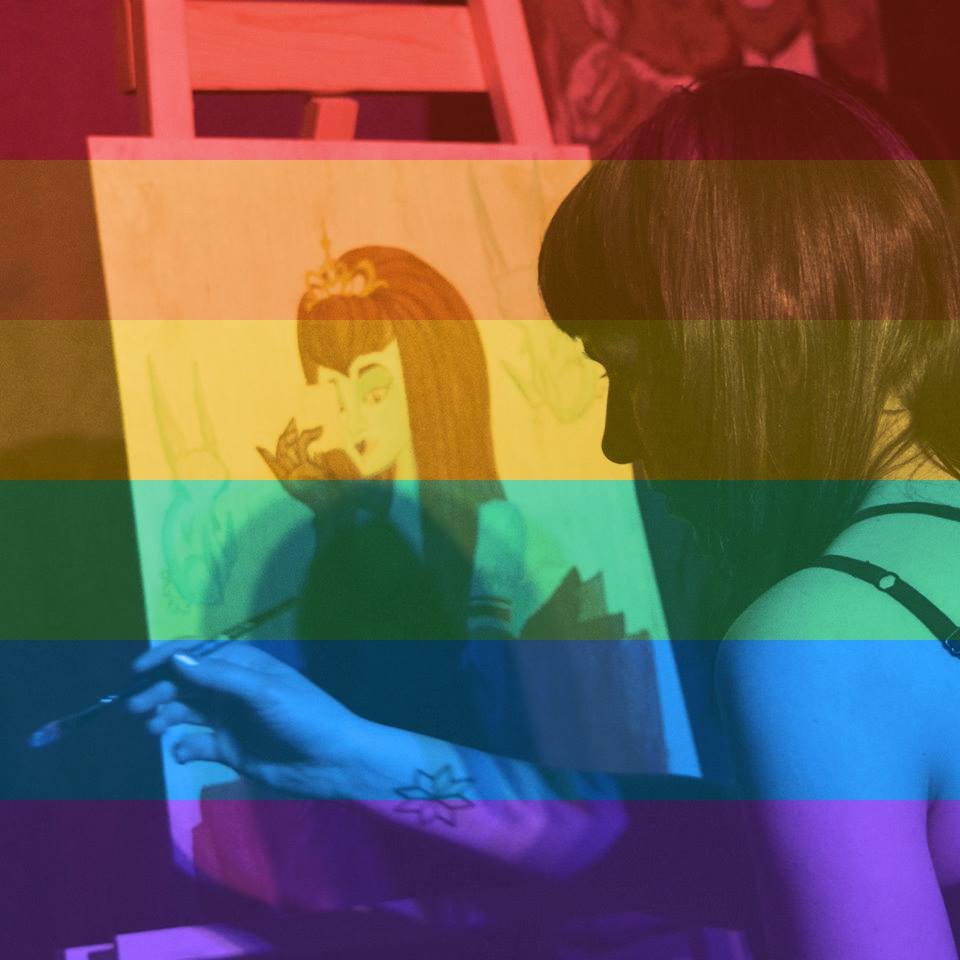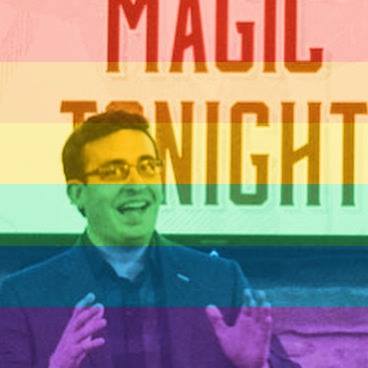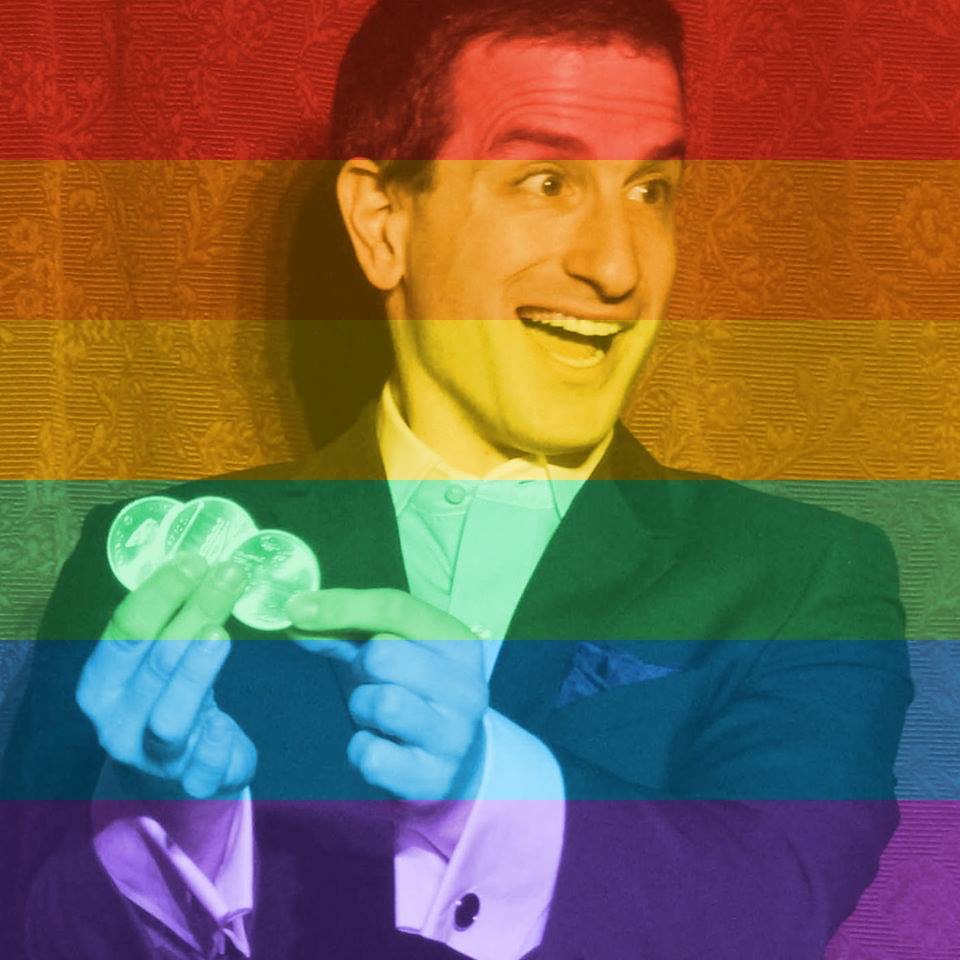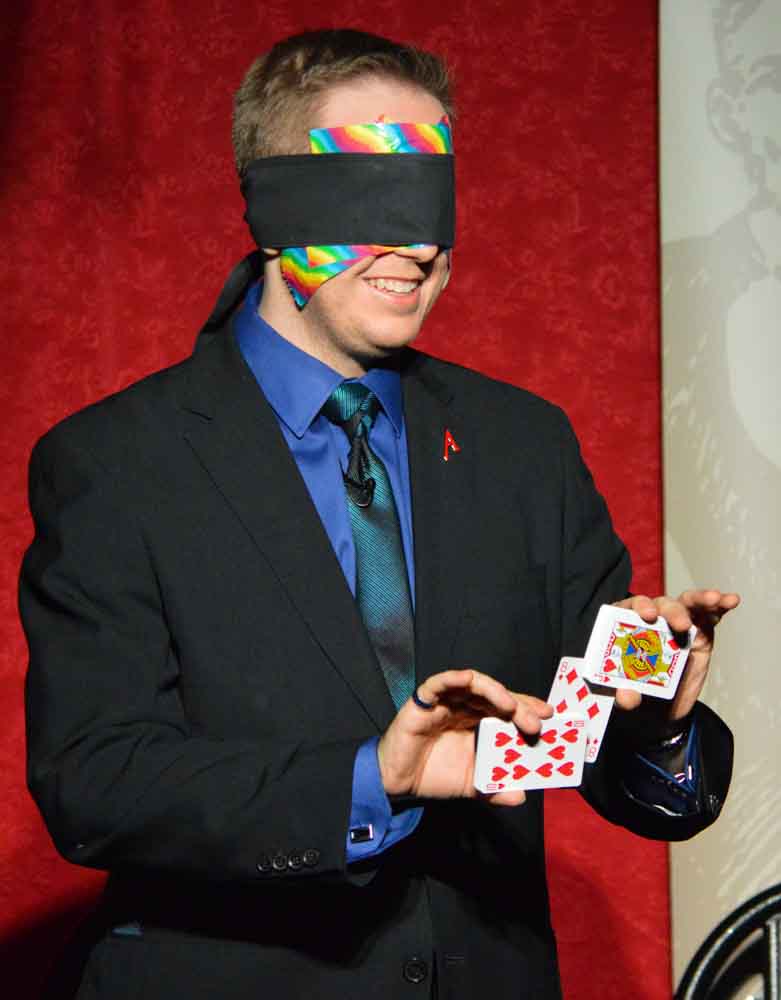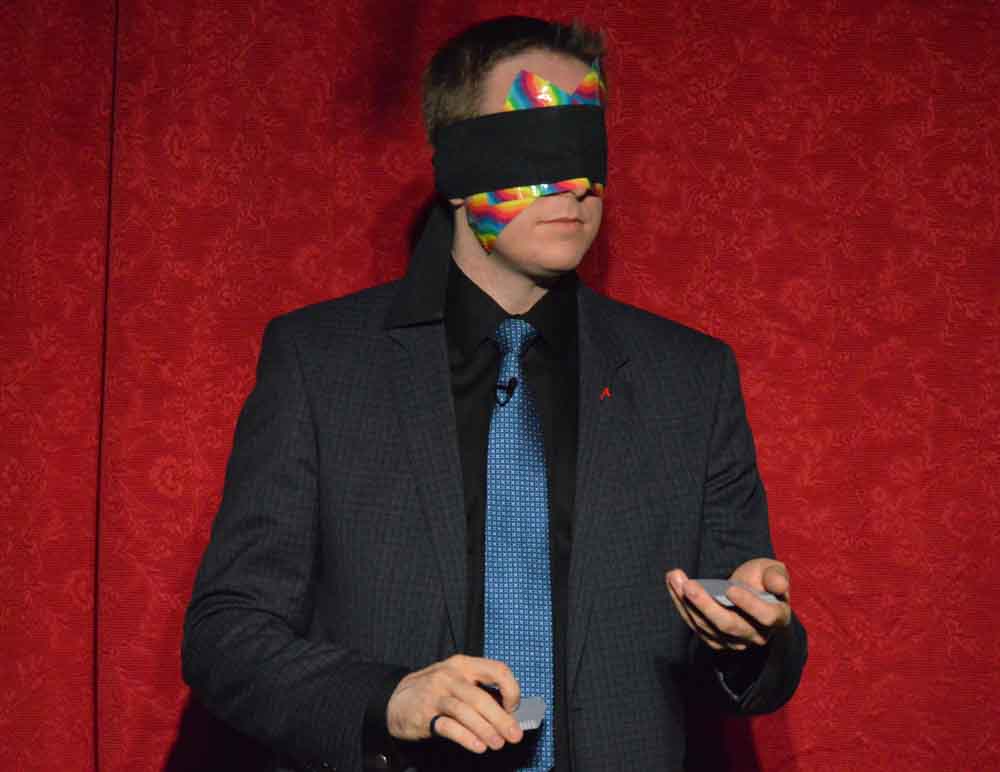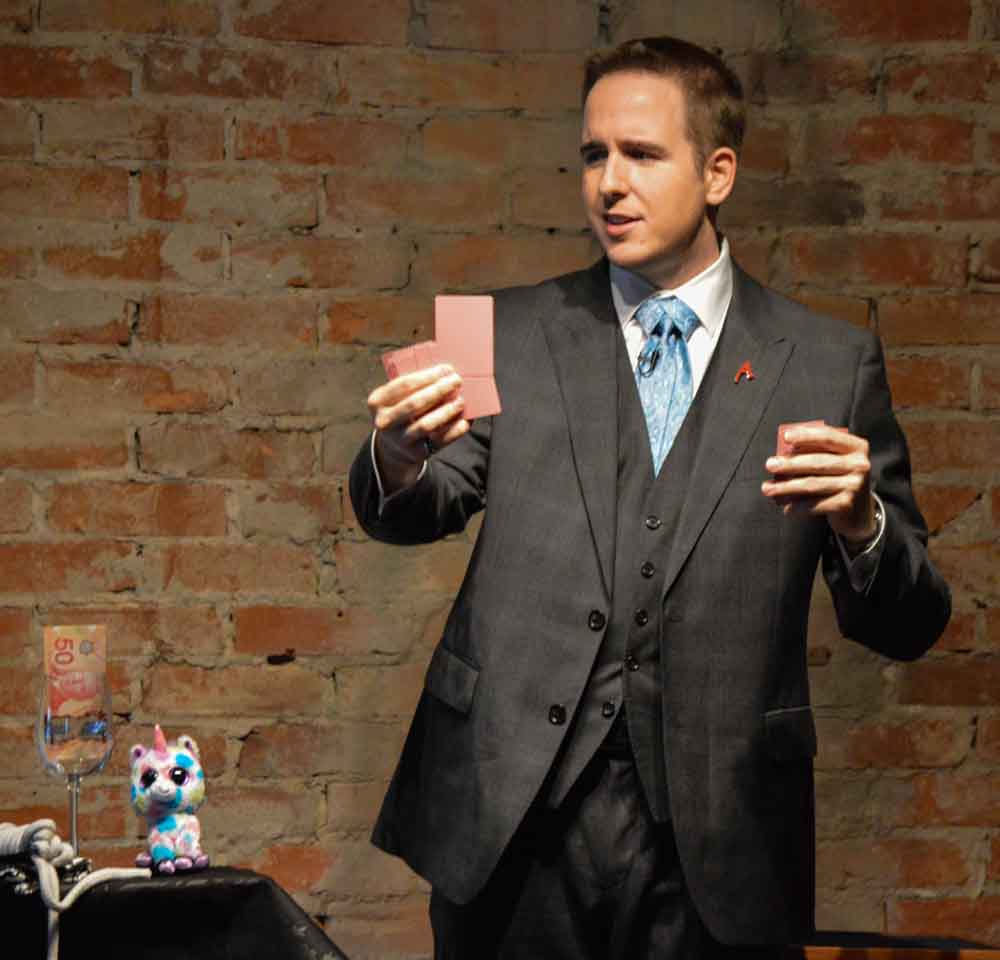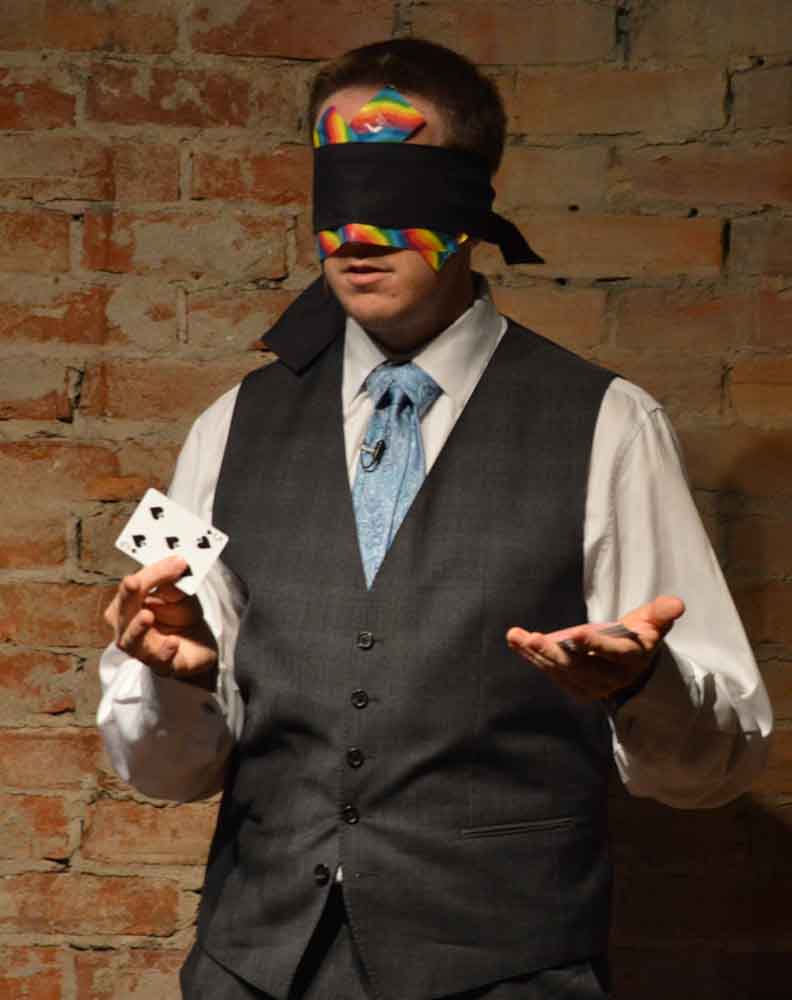I went to go see magician Chris Bruce at the Hamilton Fringe Festival last night. His show, Why Card Tricks Are Important, is part of the Fringe's "Gallery Series". It's an unusual collection of short shows — this one runs about twenty minutes — performed for much smaller audiences. The show contains — spoiler alert — card tricks. In fact it contains nothing which could not be called a card trick. They are spiffy and well-executed card tricks and fiercely interactive.
The burning question is whether or not the show could succeed in convincing someone that card tricks are, in fact, important. A more interesting question might be could anything convince you that card tricks were important. The answer is, unless you are slightly deranged, no... Unless you accept a perverse artistic meta-definition of important which allows that frivolous pursuits are important as a celebration of their own right to exist. After all, if we have a species have evolved to the point where we have so thoroughly beaten back the threats of disease, malnutrition, predators and war that we have the free time to wonder what exactly Justin Bieber is up to, isn't that a triumph worth celebrating?
For a magic show, or even a theatre presentation, it's an awkward time frame. At twenty minutes it's difficult to say hello and get through two substantive pieces before you're taking your bows. You're also spending more time getting your ticket and sitting in the theatre waiting for the show to start then you are watching the show. it would be better if someone could sit down and curate an hour or 90 minutes of complementary material so it feels like you got a little bang for your buck.
But if you're heading to the Hamilton Fringe festival, engage in something frivolously important and pick a card.
Why Card Tricks are Important has five performances left at Hamilton Artists Inc at the Hamilton Fringe Festival. Tickets ($8 with a $5 Hamilton Fringe backer button) are available at the door or online.



